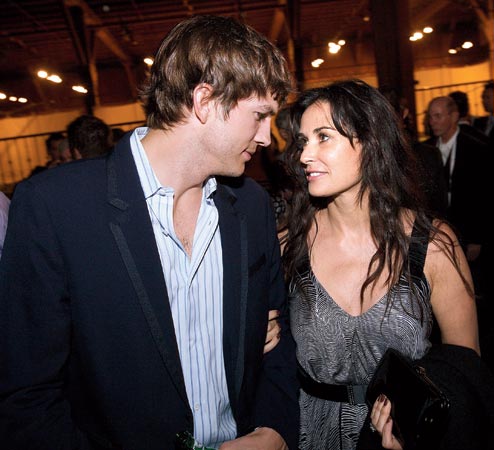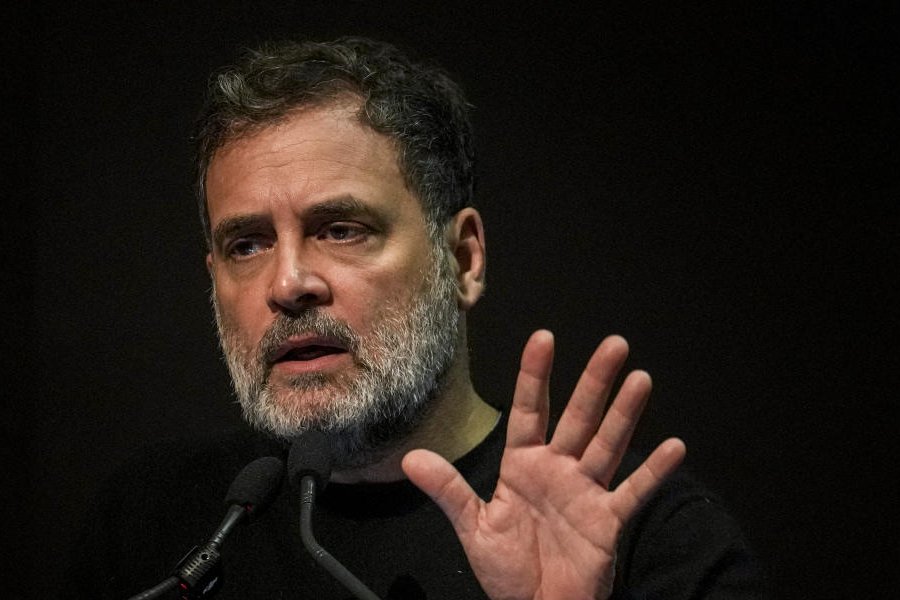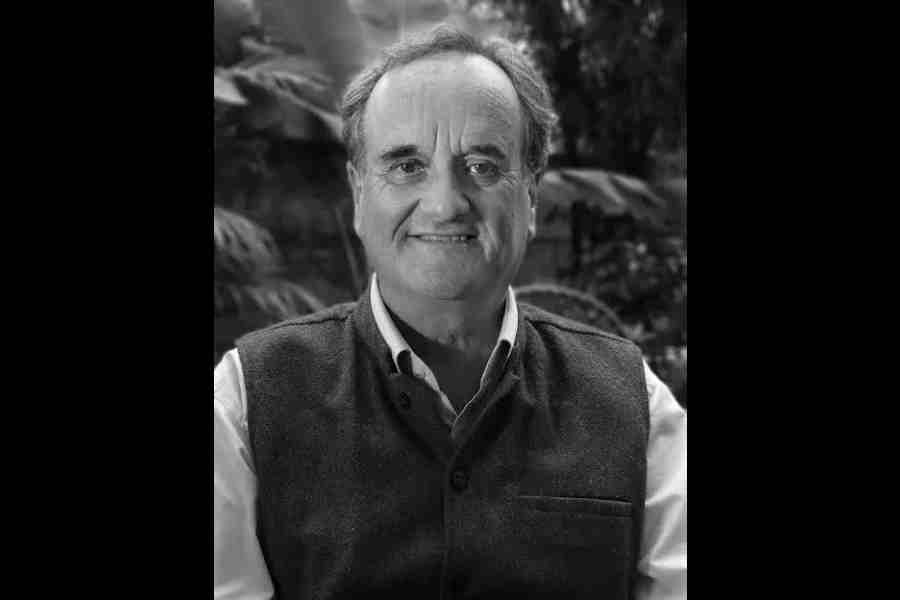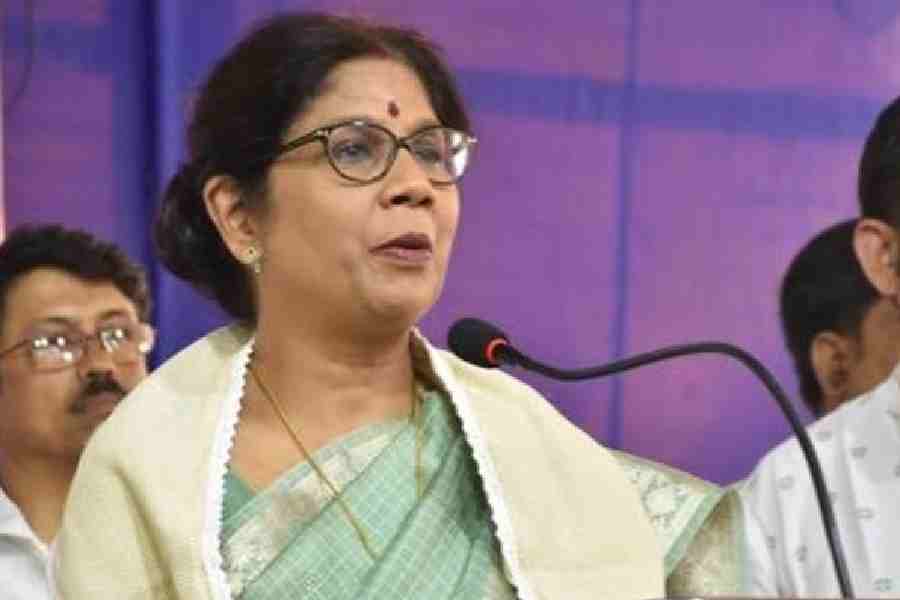What do the sons of a housekeeper, a factory worker, a psychologist, and the daughters of a country singer and a travelling salesman have in common? They are all famous Hollywood stars, world icons who have decided to devote part of their life to fighting child sexual slavery and other human rights abuses. Often at personal cost. I have known a few over the years. I want to share what they told me has motivated them to step out of their comfort zone for the greater public good.

ASHTON KUTCHER: LIVING REAL MOMENTS
Ashton Kutcher is a famous actor, venture capitalist and investor. He has acted in more than 25 movies and TV shows, successfully invested in Skype, Foursquare, Airbnb, Path and Fab.com, and co-founded the venture capital firm Sound Ventures, and A Plus, a website and mobile app that has approximately 50 million unique monthly visitors and an average of 100 million page views per month.
In spite of the crazy schedule of his celebrity life and growing businesses, he has taken time out to work against sex trafficking and prostitution. With his former wife, Demi Moore, he founded DNA, the Demi and Ashton Foundation, that has been relaunched as Thorn, aimed “to disrupt and deflate the predatory behaviour of those who abuse and traffic children, solicit sex with children or create and share child pornography”.
I met him in 2009, when he wanted to brainstorm on what the foundation should focus on in its work against sex trafficking. I suggested men. His looks, his celebrity, and being male would help us focus attention on male demand, which drove the sex industry. The first campaign of the foundation was “Real Men Don’t Buy Girls”.
In 2012, when I returned to India after getting treated for cancer, he called to say that he was going to be in town and could he please visit the Apne Aap facilities. He was visiting India to research for a biopic on Steve Jobs, and “one of my main agendas is to visit Apne Aap. I have decided that the first tweet I send out from India will be from Apne Aap”.
And that is what he did. Ashton (@aplusk) tweeted at 12.32pm on Friday, August 30, 2012: “Met some powerful girls today in Delhi at Apne Aap: A grassroots movement to end sex trafficking!”

He sang Don McLean’s American Pie for the girls and women from a nomadic caste community called Peran, trapped in inter-generational prostitution because they were labelled a criminal tribe under British colonialism. Sitting in a circle, the girls shared stories about overcoming fear to go to school, standing up in court to testify against traffickers and resisting the violence done to their mothers. He said even he felt very nervous whenever he had to go on stage but overcoming that fear was what he loved most about life.
“The qualities of a good leader are the courage to tackle big problems and to realise that the world around us is created by people no smarter than us”. Then he asked: “So, we can change it, right?”
Dressed in a light cotton shirt and trousers he walked with me through the mean streets of the red-light area recounting incidents from his own life that helped him overcome fear, and find solutions and want to reach out to help others beyond “writing the $500 check”.
Kutcher contemplated suicide to save his twin brother’s life with a heart transplant when he was 13. His father, a factory worker, had dissuaded him. During his senior school year, he broke into his high school to steal money; he was arrested leaving the scene. Kutcher was convicted of third-degree burglary and sentenced to three years’ probation and 180 hours of community service. Kutcher stated that although the experience “straightened him out”, he lost his girlfriend and anticipated college scholarships. To earn money for his tuition, Kutcher sometimes sold his blood.
These experiences have motivated him to reach beyond his own daily routine to do something beyond the call of duty. “I do not get to live too many such real moments. The bravery of these girls will motivate me forever.”
Recently, he testified to the US Senate on behalf of these girls for a law that would invest in marginalised girls and punish their pimps.

DEMI MOORE: ANTI-HOLLYWOOD, ANTI-GLITZ
In 2009, Demi Moore called me “a fearless leader in the crusade against sex slavery” when she presented me with the Clinton Global Citizen Award for my work against sex trafficking, “a cause that was very dear” to her. We had a long conversation about the importance of dealing with this urgent global problem. I gave her a copy of my documentary, The Selling of Innocents, on the trafficking of women and children from Nepal to India. She went on to create the Demi and Ashton Foundation to eliminate child sex slavery worldwide and focused on addressing the demand for prostituted sex. In 2012, she visited Anuradha Koirala, from Maiti Nepal (an NGO founded by Anuradha), featured in my documentary. The visit resulted in a CNN video and the CNN Freedom Hero award for Anuradha.
Demi Moore has acted in more than 40 films and TV shows, been paid a record-breaking salary of $12.5 million for acting in just one film at one time. She has three children and has invested in several businesses. She told me that she was determined to free women from the shame that surrounded female nudity and end the sexual violence done to women and children.
The star of Striptease and Indecent Proposal and Disclosure has been the subject of much sexual objectification over her willingness to dance topless, show her breasts on film, and for posing nude on the cover of a magazine as a 16-year-old.
She told me how, in August 1991, when she appeared nude on the cover of Vanity Fair while she was seven months pregnant, to portray an “anti-Hollywood, anti-glitz” attitude, it led to virulent criticism. Since then she has seen the sexual objectification of women, their sexual shaming and the sexual violence done to them as part of the same continuum and that is why she decided to start the foundation and make ending sex trafficking one of her main causes.

ASHLEY JUDD: I AM WILLING TO STAND UP FOR THE TRUTH
Ashley Judd’s recitation of Nina Donovan’s poem, Nasty Woman, in the 2017 Women’s March to protest Donald Trump’s inauguration, went viral. More than five million people liked the YouTube video. Straight from the standing ovation in the National Mall at Washington, Ashley caught a flight to Calcutta to be with the women and girls of Apne Aap, my NGO that works to end sex trafficking.
She would get up every morning and go to Sonagachhi to share stories of sorrow and courage with mothers and daughters of this notorious red-light area. She gave strength and took strength. At the Apne Aap World Congress against sexual exploitation in Delhi a week later, she sat on the floor, hidden in the audience, so that her star power would not distract people from listening to the important issues that victims and survivors of prostitution were talking about.
After the congress, she spent a week in Bihar doing seva in the Apne Aap community centres in far-flung villages — painting, cleaning, singing and sharing. She explained to a group of Panchayati Raj women that she was inspired by Gandhi’s quest for truth and transformation. She had learned from him that change begins from the bottom and transforms the top and she had to be the change if she wanted to see that. That is why she always spoke her truth and was prepared to face stigma and discrimination.

In both Calcutta and Delhi, as well at the UN in New York, I had heard her speak about her own sexual exploitation, her rape, being sold as a teenager, and her journey towards healing. She explained to me that as an activist against sexual violence, she felt that if she did not break the silence, she could not expect sisters in prostitution to overcome fear, shame and guilt.
“I was a last girl too. I want to leverage my star power for the last girl now,” she told me. I knew from personal experience that she did. Seven years ago, I had struggled to get the daughter of a prostituted woman out of a remand home and reunited with her mother. Ashley had told the entire national press in Delhi that she would go on hunger strike if Apne Aap was not given custody of the girl. We did get custody. The girl is an adult now, a married woman with a son, educated in three languages.
As I sat in the Taj Bengal hotel room with Ashley, she read me a mail from a chain of stores that had cancelled a contract with her as their brand ambassador because she had taken a public position against Donald Trump. “So be it,” she said. “ I knew sacrifice was involved when I took a stand. But like Gandhiji, I am willing to stand up for the truth.”

RICKY MARTIN: BATTLING LONELINESS AND ABUSE
Today, I feel proud when I read and hear of Ricky Martin’s wonderful work against child sexual abuse. When he sent a message to the committee of the 2010 Abolitionist Award, calling me a special friend and mentor, I pondered over the words. Did I really do anything or was he already interested in taking on this cause and we connected because we were already friends and allies, whose lives happened to intertwine?
I remember when I went to Puerto Rico a decade ago on his invitation to brainstorm on the aims and mission of his foundation — People for Children, better known as the Ricky Martin Foundation — he took me around his city to meet street children. He wanted to run campaigns against the rampant child trafficking in Latin America.
When we had chatted in Puerto Rico, he had said how as a child in the music industry he had faced loneliness and abuse and had always wanted to do something about it.

That little boy grew up to write and sing the song Livin’ la Vida Loca, which sold over eight million copies, and an English-language album, Ricky Martin, which has sold 22 million copies, making it one of the bestselling albums of all time.
Influenced by Buddhism and yoga, he visits India frequently. “India has been an important part of my spiritual growth.
Whenever I get the chance, I go to India. I really like the Buddhist philosophy but that doesn’t mean that I am of the religion. If I subscribe to Buddhism, I can’t be of anything else... I am not going to follow those rules.”
I still have an email he sent after the Iraq war started: “My convictions of peace and life go beyond any government and political agenda and as long as I have a voice onstage and offstage, I will always condemn war and those who promulgate it.”

HARRY BELAFONTE: A VOICE FOR THE MARGINALISED
I first met Harry Belafonte in 1997 at the Unicef office in New York, where I used to work. He was a Unicef goodwill ambassador and we were working on a campaign to help children affected by HIV/ AIDS due to sexual exploitation or the death of their parents due to AIDS. He represented Unicef on Norwegian television to support an annual telethon that raised a world record of $10 per inhabitant of Norway.
Recently, he was the honorary co-chair of the Women’s March in Washington, held in protest the day after the inauguration of Donald Trump as president of the US.
As a Calcutta girl, I had grown up with his Day O, Jamaica Farewell and Jump in the Line (Shake, Senora) and admired the fact that this King of Calypso from Jamaica had used his career and experience as an artiste to be an activist for causes which affected the most marginalised people of the world and in his own country. He supported the Civil Rights Movement in the 1950s and 1960s and was one of Martin Luther King Jr’s confidantes. He was active in the anti-apartheid movement. He opposed the Iraq war. Presently, he is ambassador for the American Civil Liberties Union on issues related to juvenile justice and the incarceration of children.
His success has not protected him from criticism or from racial discrimination, particularly in the American South. Belafonte was blacklisted during the McCarthy era. Some lucrative music contracts were cancelled. Yet he continues. What makes him put himself on the line, and risk social and financial losses again and again?
The answer perhaps lies in a tea conversation I had with him 20 years ago, in his West End apartment. I told him that I was planning to quit the United Nations and go work in India against sex trafficking. We spoke about many things. I told him that I had a hand-written article by C.L.R. James, a West Indian political commentator, talking about the impact that my uncle’s political mentorship had on his life. Belafonte smiled and said, he too was inspired by the singer, actor and Communist activist Paul Robeson, who had mentored him. Robeson had a deep belief that human beings were central to democracy and the most marginal human beings were the most central.
I remember smiling and thinking of our conversation when I read that when Belafonte was warned that he would be criticised for his stand on the Iraq war, he responded: “Bring it on. Dissent is central to any democracy.”
My life has intersected with other Hollywood stars — Goldie Hawn, Rosanna Arquette, Jane Fonda, Reshma Shetty, America Ferrera, Alicia Keys, Quincy Jones, Meryl Streep, Donna Deitch, Carey Lowell, Christine Lahti, Angelina Jolie and so many more. All of them have gone beyond their busy lives to support causes for the greater public good. They have all faced backlash but continued and, perhaps, that is our bond and makes them my “family of choice”.
Ruchira Gupta is a feminist campaigner and founder of Apne Aap Women Worldwide.
She has won an Emmy, the Clinton Global Citizen Award, and the
Chevalier de l’Ordre National du Merite. The girl from Alipore in
Calcutta dreams of a world in which no human being is bought or sold.
Visit and pledge your support at www.apneaap.org










